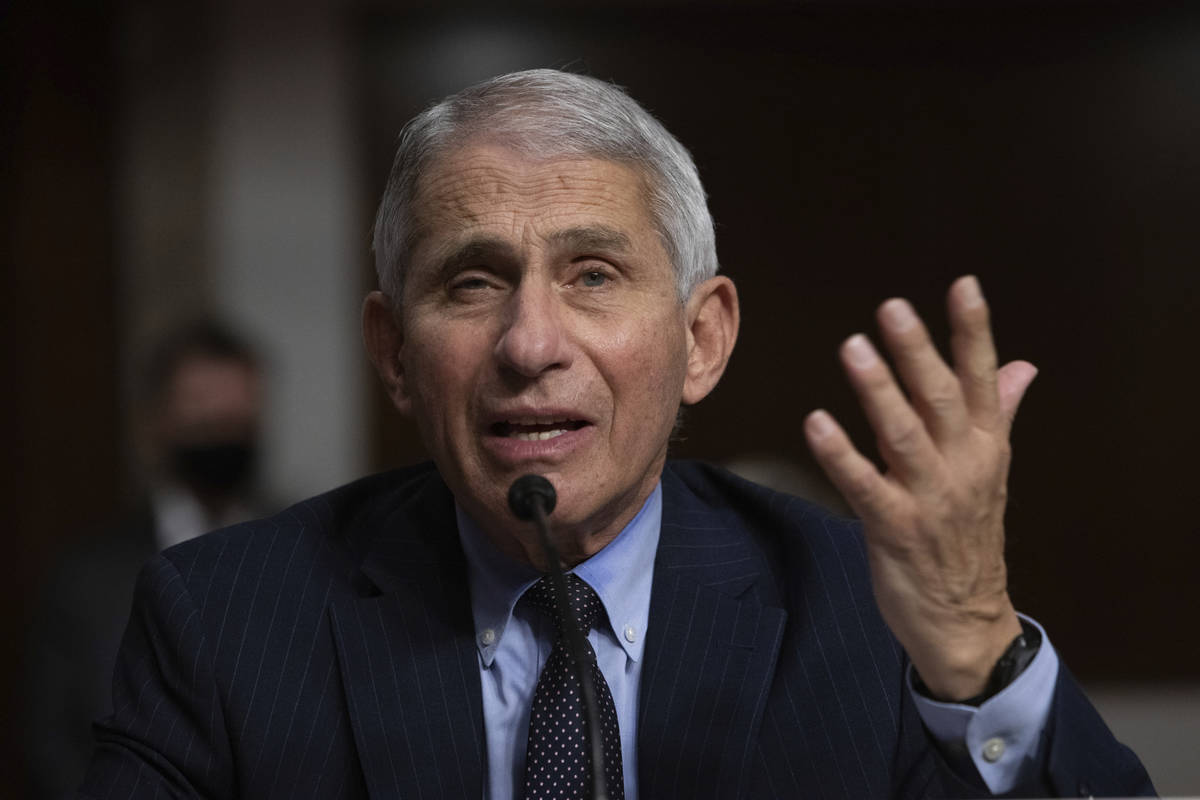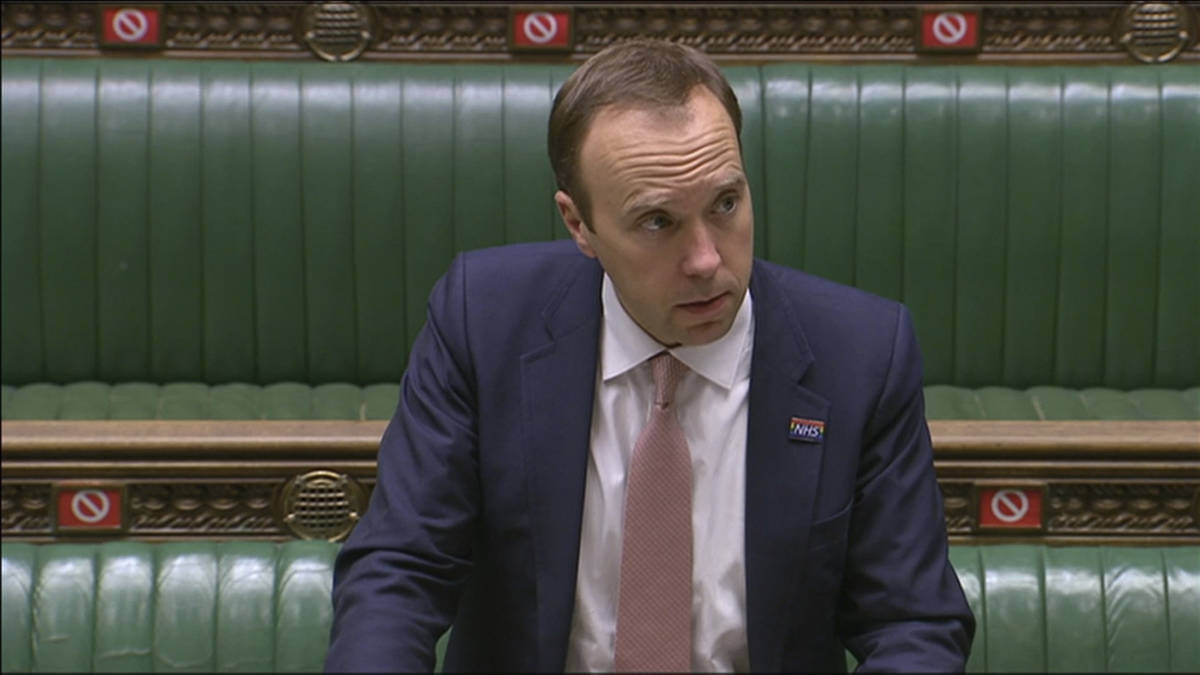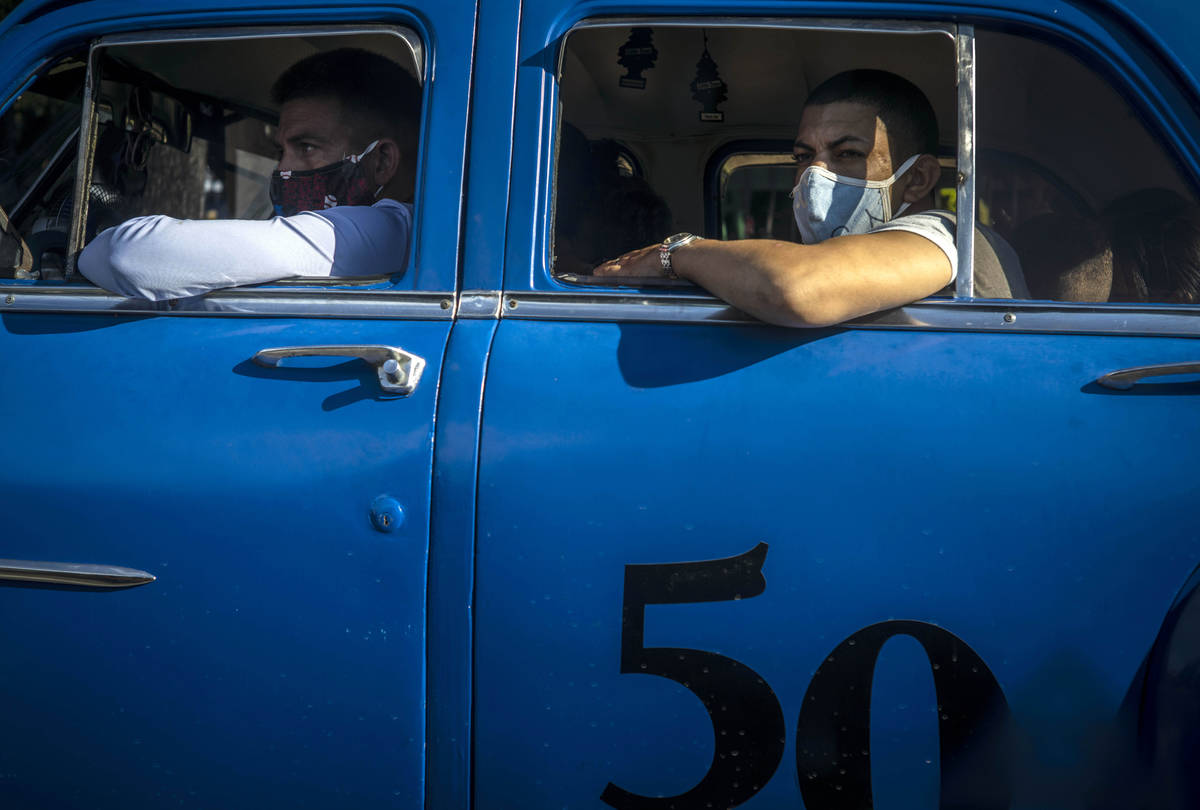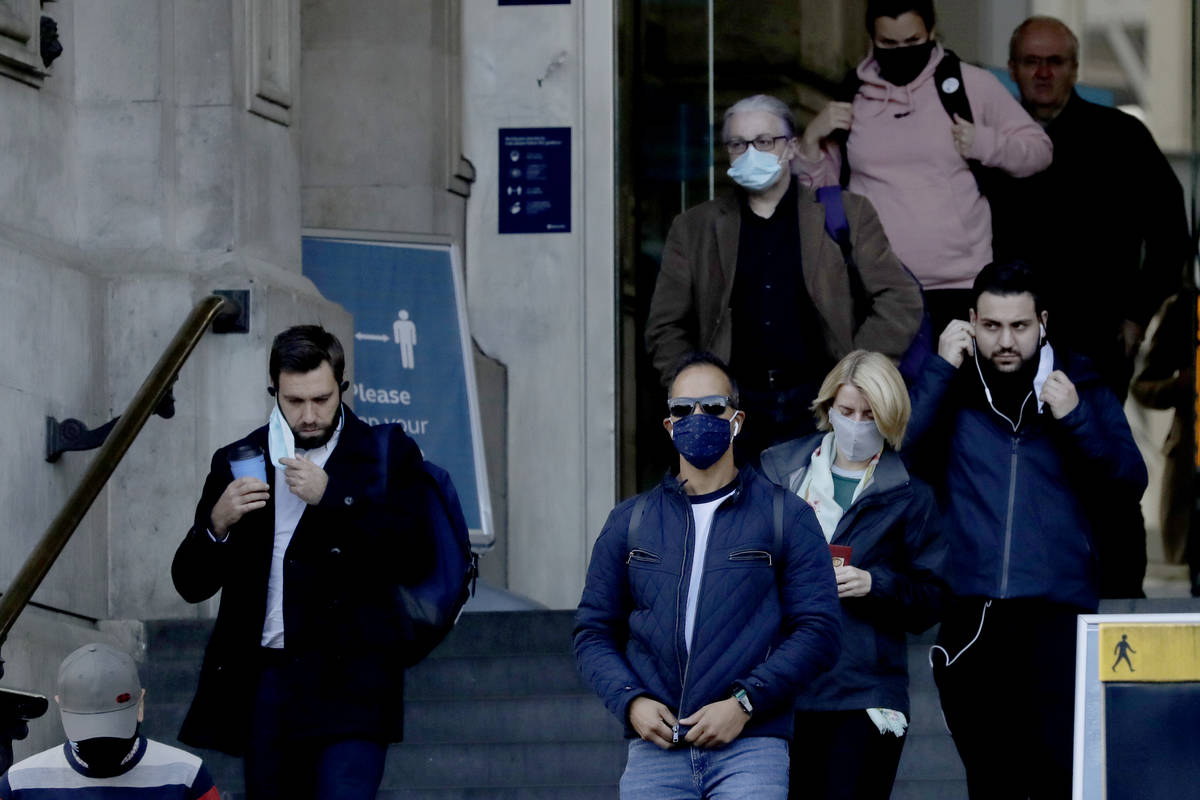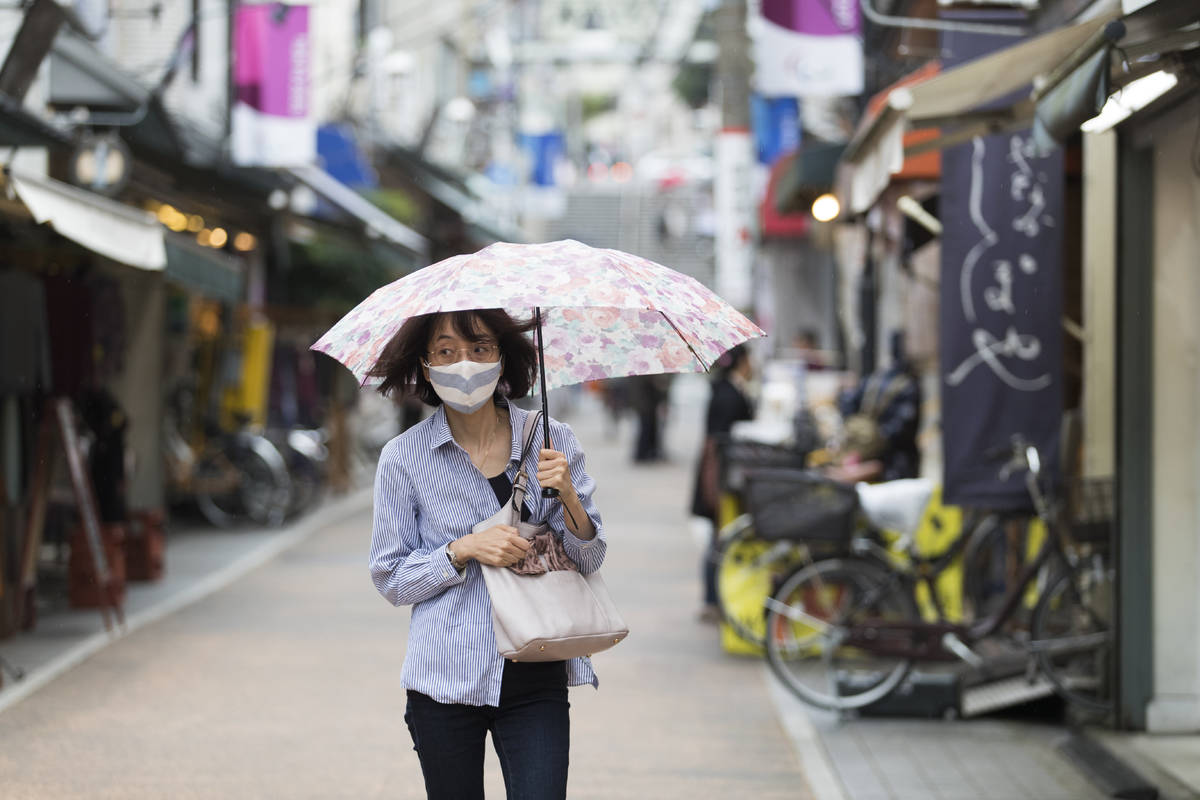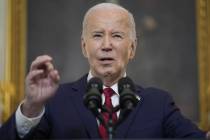Fauci calls herd immunity concept ‘total nonsense’
WASHINGTON — Dr. Anthony Fauci is criticizing a declaration by a group of scientists that supports the concept of “herd immunity,” which the White House is using to bolster a push to reopen schools and businesses.
Fauci says backing herd immunity — the idea that a disease will stop spreading once nearly everybody has contracted it — is “total nonsense.”
The top U.S. infectious disease expert says: “If you talk to anybody who has any experience in epidemiology and infectious diseases, they will tell you that that is risky and you’ll wind up with many more infections of vulnerable people, which will lead to hospitalizations and death,” he told ABC’s “Good Morning America” on Thursday. “So I think that we’ve just got to look that square in the eye and say it’s nonsense.”
The U.S. leads the world with 7.9 million coronavirus cases and nearly 217,000 confirmed deaths. Globally, there have been 38 million reported cases and 1.09 million confirmed deaths.
What you need to know about the virus outbreak
— WHO: European cases rocket, says strong coronavirus limits needed
— Germany reports more than 6,600 new coronavirus cases
— India reports 67,708 new infections, total more than 7.3 million
— London moves to second-highest coronavirus alert level amid rise in cases.
— French police search homes of the former prime minister, the current and former health ministers in probe of government response to coronavirus pandemic.
— Nominations for the Tony Awards will have just 18 eligible plays and musicals because of the coronavirus interrupting on the Broadway season.
What else is happening
Germans see doubling in hospitals: The German Hospital Federation says the number of people hospitalized with COVID-19 in the country has doubled in the past week.
The head of the federation, Gerald Gass, says the first wave showed it takes about 14 days for the rise in infections to affect hospitals. He says the number of patients receiving intensive care is likely to pass 2,000 by November at current rates.
Germany’s well-funded health system has helped the country keep the death rate from COVID-19 significantly below other large European countries.
During the first wave of infections in spring, Germany took in dozens of patients from France, Italy, Spain and the Netherlands as their hospitals struggled to care for seriously ill patients.
Bavaria’s governor Markus Soeder says his state has received a request to treat patients from the neighboring Czech Republic, where case numbers have surged in recent days.
Brits moved to 2nd-highest alert level: Britain’s health secretary says London has moved to the second-highest coronavirus alert level amid a rise in cases.
Health Secretary Matt Hancock told the House of Commons the government acted because infection rates are rising rapidly in the capital and swift action was necessary to control the virus.
The move comes as millions of people in northern England are waiting to learn if they’ll be placed under the government’s tightest restrictions, like Liverpool.
The “high risk” category in the government’s new three-tier regional COVID-19 strategy would require closing bars and banning social gatherings outside one’s own home.
London Mayor Sadiq Khan says he’ll continue to lobby the government for further financial assistance for those affected.
Portugal limits gatherings to 5: Portugal is restricting social gatherings to a maximum of five people.
It’s also making masks mandatory outdoors and will impose fines on those disregarding measures against the record numbers of coronavirus infections.
Some of the new measures will last initially 15 days and come under a state of calamity that came into force in the early hours of Thursday, a day after it was adopted by the Portuguese Cabinet.
Prime Minister Antonio Costa has called the surge in coronavirus cases as “serious” but has rejected imposing a strict lockdown.
Attendance at weddings, baptism ceremonies and other family functions will be limited to 50 people. Businesses that break rules on opening times and on serving of alcohol will face fines up to 10,000 euros ($11,700), twice as much as the current amount.
Portugal has more than 90,000 confirmed infections and 2,100 deaths.
WHO urges restrictions in Europe: The exponential surge of coronavirus cases across Europe has warranted the restrictive measures being taken in numerous countries, making them “absolutely necessary,” the head of the World Health Organization’s Europe office says.
In a press briefing Thursday, Dr. Hans Kluge warned even more drastic steps could be taken if the pandemic does not recede.
He called for countries to be “uncompromising” in their attempts to control the virus, saying most of the COVID-19 spread is happening in homes, indoor spaces and communities not complying with protection measures.
“These measures are meant to keep us all ahead of the curve and to flatten its course,” Kluge said, while wearing a mask. “It is therefore up to us to accept them while they are still relatively easy to follow.”
Kluge cited epidemiological models that suggested if 95% of people wear masks and other social distancing measures are applied, Europe could avoid about 281,000 deaths by February. But he warned that relaxing measures could lead to a five-fold increase in deaths by January.
“The evolving epidemic in Europe raises great concern,” he said. “But we should not hold back with relatively smaller actions in order to avoid the same very painful damaging actions we saw in the first peak.”
Czechs building new hospital: The Czech Republic’s military will establish a hospital at Prague’s exhibition center to treat COVID-19 patients, the first such facility in one of the hardest-hit European countries.
Thursday’s announcement by Interior Minister Jan Hamacek comes amid a record surge of new coronavirus cases in the country that reached a record high of 9,544 a day earlier.
Reacting to growing number of coronavirus hospitalizations, Prime Minister Andrej Babis says the government is planning to buy 4,000 extra hospital beds. The country’s hospitals currently treat 2,678 coronavirus patients and the government says the hospitals could reach their full capacity by the end of October.
“We have to build extra capacity as soon as possible,” Babis said Thursday. “We have no time, the prognosis is not good,” Babis told reporters ahead of his trip to Brussels for an EU summit.
Health Minister Roman Prymula said sports grounds and other venues can also be used for treating coronavirus patients.
Croatia infections surge: Croatia is reporting record numbers of new infections for the second day in a row amid alarm over the rise in cases.
Authorities said Thursday that 793 people have tested positive in the past 24 hours while 10 people have died. On Wednesday, Croatia reported 748 new cases and four deaths.
The confirmed new cases are the highest in the European Union country of some 4.2 million people since the start of the outbreak. Authorities have tightened preventive measures to try and curb the spread.
Most of the new cases have been recorded in the capital of Zagreb.
Air bubble for 2 cities: Hong Kong and Singapore say they have agreed to a bilateral air travel bubble, re-establishing travel links as coronavirus infections in both cities decline.
Under the air travel bubble, travelers from Hong Kong and Singapore will not be restricted on their travel purposes, Hong Kong commerce minister Edward Yau said Thursday. This means that tourists from each city will be able to visit the other.
Under the air travel bubble, travelers will also not be subject to compulsory quarantine, provided they have taken coronavirus tests mutually recognized by both cities, with a negative test result.
Additionally, travelers are required to fly on dedicated flights, which will only serve air travel bubble travelers between Hong Kong and Singapore. The launch date has yet to be announced.
1,744 Mexico health care workers dead: Mexico has reported that 1,744 health-care workers have died so far of COVID-19, and another 164 are suspected to have died of it but their test results are still pending.
The number of doctors, nurses, technicians and hospital employees confirmed to have been infected with the novel coronavirus in Mexico now amounts to 127,053. That means health care professionals account for about 15% of all Mexico’s confirmed coronavirus cases, and about 18% of all COVID-19 deaths.
The Health Department said that of those who died, 42% were nurses, 26% were doctors, and 32% were technicians, cleaning staff or other hospital employees.
Mexico has one of the highest rates of medical-personnel deaths in the world, and hospital employees have staged a number of demonstrations in Mexico to protest insufficient personal protective equipment. But Health Department officials denied the death rates was because of a lack of protective gear.



